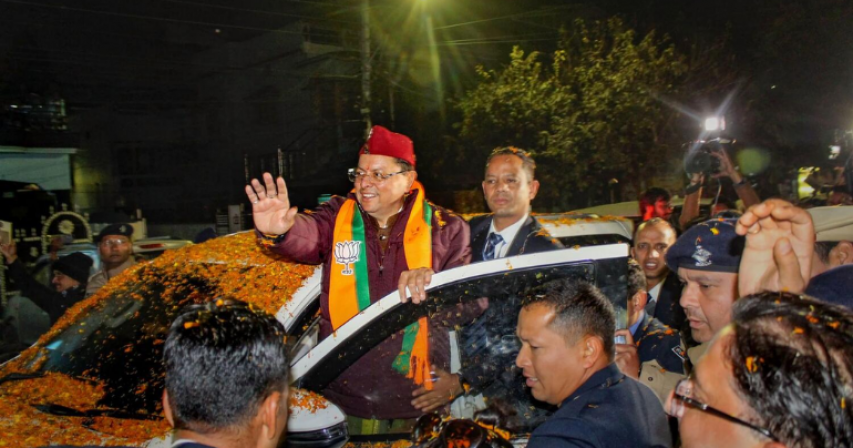Uttarakhand's Uniform Civil Code Debate

The recent passage of a Uniform Civil Code (UCC) law in the Indian state of Uttarakhand has sparked a contentious debate, with proponents lauding it as a step towards gender equality and critics expressing concerns about potential ramifications for minority communities.
Advocates of the UCC argue that it promotes women's rights by abolishing discriminatory practices, such as polygamy, and ensuring equal property inheritance rights for sons and daughters. Additionally, the law sets the minimum age of marriage at 18 for women and 21 for men, and mandates the registration of live-in heterosexual relationships. Failure to comply with registration requirements may result in penalties, including imprisonment or fines.
Uttarakhand Chief Minister Pushkar Singh Dhami emphasized that the UCC aims to eradicate "ill practices" and establish equal rights for all citizens. However, the passage of this law has raised concerns among minority communities, particularly Muslims, who fear that it could infringe upon their religious freedoms.
The UCC debate has been further fueled by recent political events, including Prime Minister Narendra Modi's participation in the consecration of a grand temple in Ayodhya, where a Mughal-era mosque was demolished. Critics view these developments as signals of the ruling Bharatiya Janata Party's (BJP) intention to implement the UCC nationally after the upcoming elections.
Opponents of the UCC, including Muslim leaders and conservative organizations, argue that it contradicts Islamic laws on marriage, divorce, and inheritance. They assert that personal matters should be governed by Shariah law, rather than by a uniform civil code imposed by the state.
Asma Zohra, the head of the All India Muslim Women Association, advocates for societal reforms to address issues like child marriage, rather than imposing laws without consulting affected communities. Additionally, concerns have been raised about clauses in the UCC related to the registration of live-in relationships, with some legal experts cautioning against government interference in consensual arrangements between individuals.
The passage of the UCC in Uttarakhand represents a significant development in India's legal landscape, as the country has historically followed diverse personal laws for different religious communities. While a common criminal code exists, personal matters such as marriage, divorce, and inheritance have been governed by a patchwork of religious laws.
However, it is important to note that Goa is the only region in India that already has a common civil code, which was established during its time as a Portuguese colony. The introduction of a UCC in Uttarakhand has reignited discussions about the balance between secularism and religious freedom in India's diverse society.
Ultimately, the implementation of the UCC raises complex questions about the intersection of law, religion, and individual rights. As the debate continues to unfold, it is essential to consider the perspectives of all stakeholders and ensure that any legal reforms uphold the principles of equality, justice, and religious pluralism.
By: Sahiba Suri





Comments